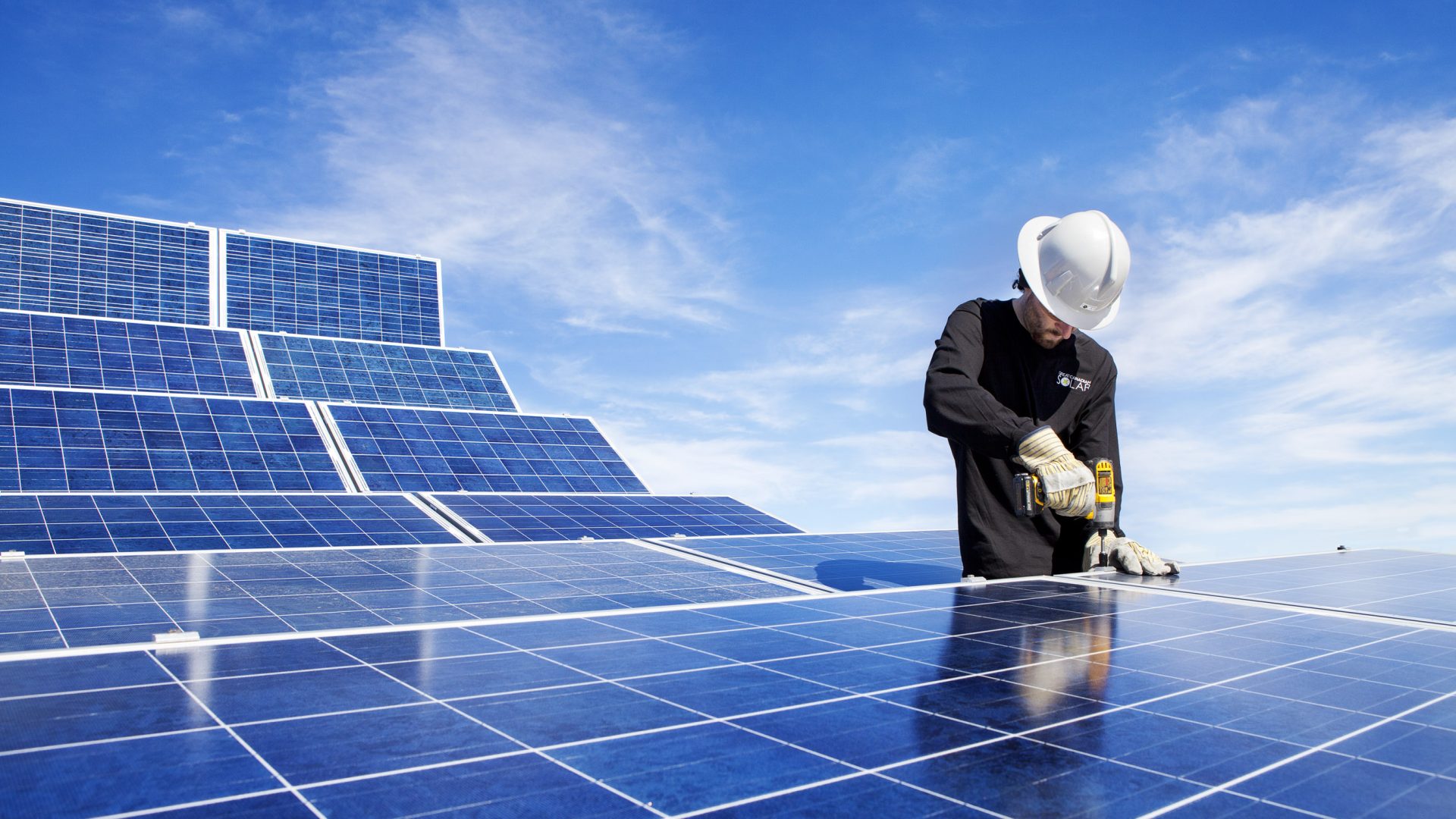
23,000 Solar Jobs at Risk As Trump Imposes Tariffs on Imports
Climate denying, President Trump has yet again shown his anti-green credentials by trying to undermine the US solar industry.
Climate denying, President Trump has yet again shown his anti-green credentials by trying to undermine the US solar industry.
Yesterday, the President approved tariff duties of 30 per cent on imported solar equipment. The move, as Bloomberg puts it, “threatens to handicap a $28 billion industry that relies on parts made abroad for 80 percent of its supply.”
In response the Solar Energy Industries Association (SEIA), said: “The decision effectively will cause the loss of roughly 23,000 American jobs this year, including many in manufacturing, and it will result in the delay or cancellation of billions of dollars in solar investments.”
Abigail Ross Hopper, SEIA’s President, issued a statement, saying that the tariffs would “create a crisis in a part of our economy that has been thriving, which will ultimately cost tens of thousands of hard-working, blue-collar Americans their jobs.”
Others were outraged too: “It boggles my mind that this president – any president, really – would voluntarily choose to damage one of the fastest-growing segments of our economy,” said Tony Clifford, chief development officer, Standard Solar. “This decision is misguided and denies the reality that bankrupt foreign companies will be the beneficiaries of an American taxpayer bailout.”
Bill Vietas, president of RBI Solar in Cincinnati, added: “There’s no doubt this decision will hurt U.S. manufacturing, not help it. The US solar manufacturing sector has been growing as our industry has surged over the past five years. Government tariffs will increase the cost of solar and depress demand, which will reduce the orders we’re getting and cost manufacturing workers their jobs.”
Eugene Wilkie from @NOW1SOLAR tweeted: “As a solar company, we are devastated to learn Trump has imposed a 30% tariff on solar panels virtually killing the solar industry. Solar employs more people than coal and oil combined. today’s decision will cause the loss of roughly 23,000 American jobs this year.”
Wilkie also tweeted how important the industry has become: “In the last decade, solar has experienced an average annual growth rate of 68%. Nearly 260,000 Americans work in solar – more than double the number in 2012 – at more than 9,000 companies in every U.S. state.”
You can see why the industry is critical of Trump’s tariff move. As Bloomberg notes: “The tariffs are just the latest action Trump has taken that undermine the economics of renewable energy. The administration has already decided to pull the U.S. out of the international Paris climate agreement, sought to roll back Obama-era regulations on power plant-emissions and signed sweeping tax reforms that constrained financing for solar and wind. The import taxes, however, will prove to be the most targeted strike on the industry yet and may have larger consequences for the energy world.”
The solar industry now faces four years of tariffs, starting at 30 percent in the first year, dropping to 15 percent. Although these are high, they are lower than the 35 percent rate the US International Trade Commission recommended last year.
Not everyone was against the move, however: One of the companies that had campaigned for tariffs, Suniva, which is ironically majority-owned by Hong Kong-listed Shunfeng International Clean Energy Ltd, said: “Over the last 5 years, nearly 30 American solar manufacturers collapsed; today the President is sending a message that American innovation and manufacturing will not be bullied out of existence without a fight.” But they seem to be a lone voice in support of Trump, along with the other company that campaigned for tariffs, SolarWorld.
In contrast, financial analysts were critical. MJ Shiao, head of renewable energy research for Wood Mackenzie, told the Guardian the tariffs would reduce US solar installations by 10-15% over the next five years. “It is a significant impact, but certainly not destructive to the end market,” Shiao said.
Environmental groups were scathing, as well. Bill Waren, senior trade analyst at Friends of the Earth, told Bloomberg the decision was “recklessly irresponsible and a thinly veiled attack on clean energy.”

